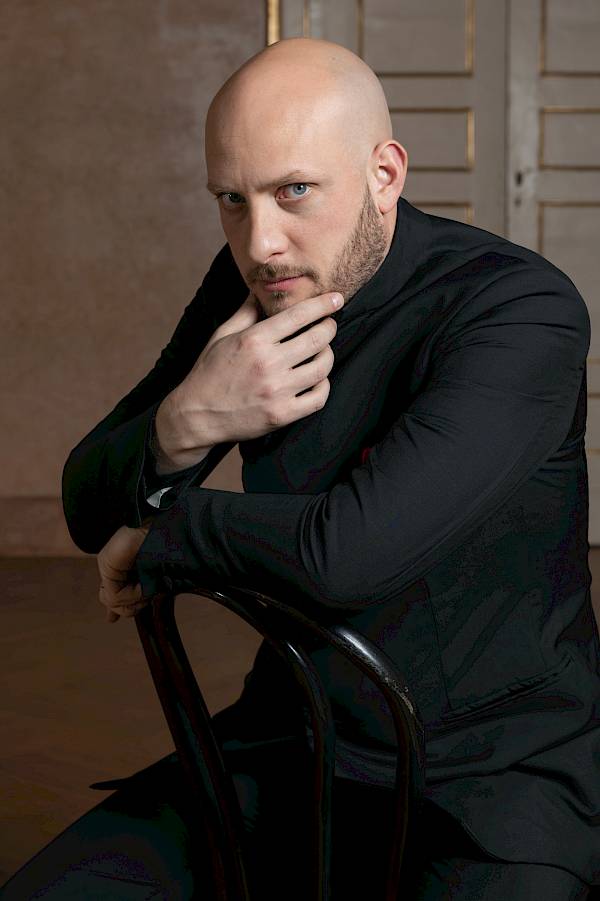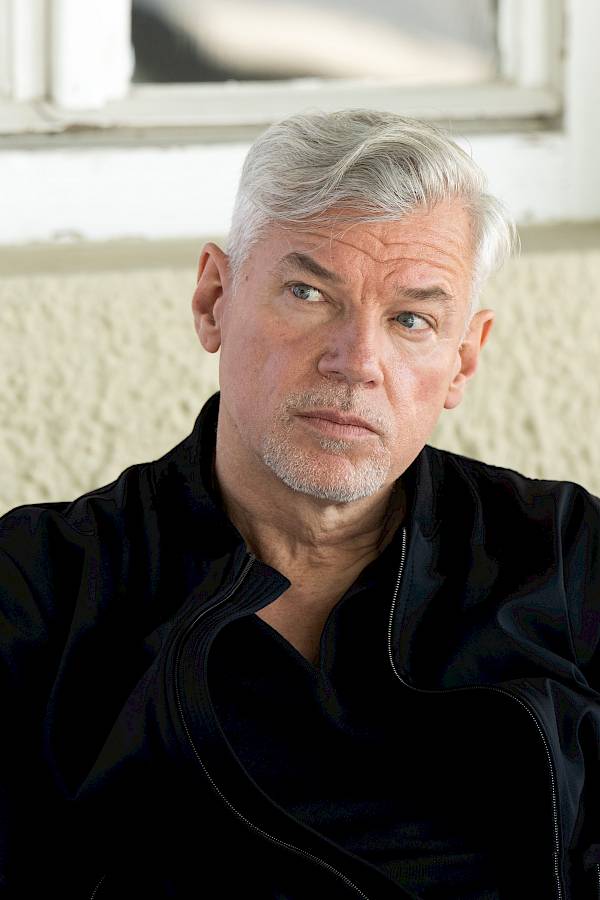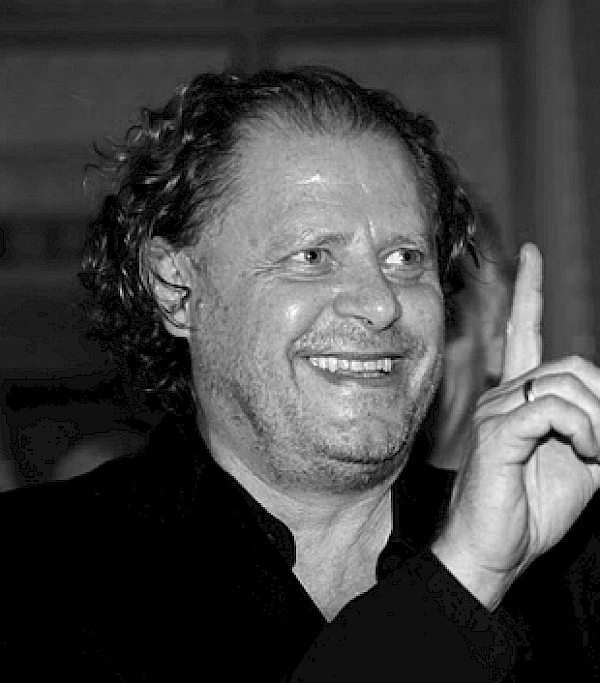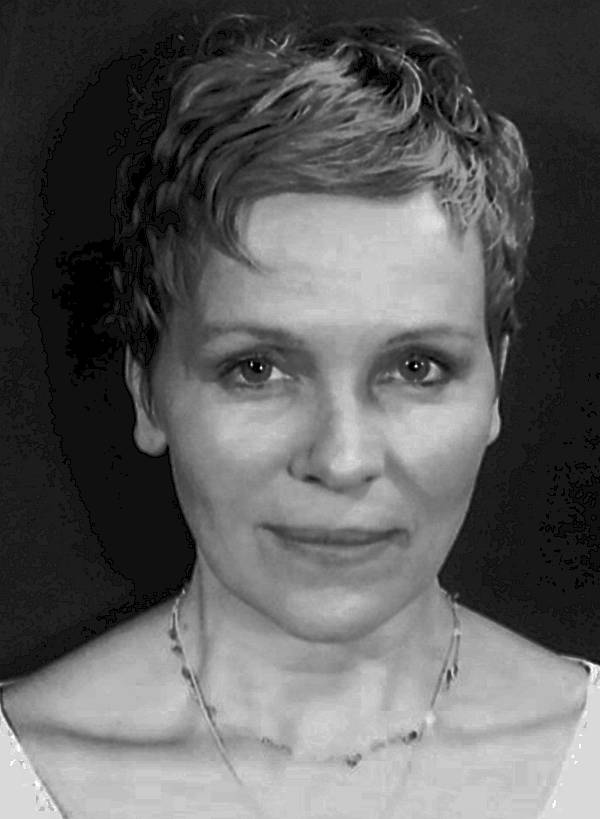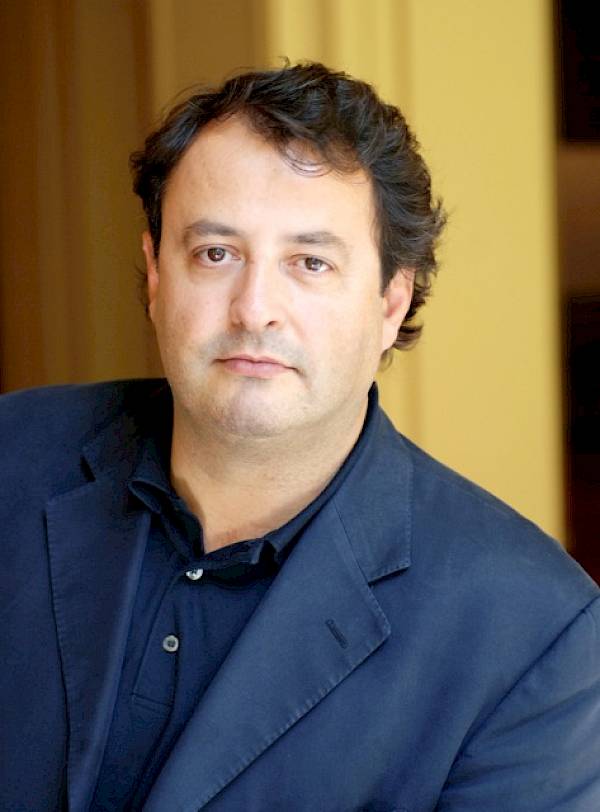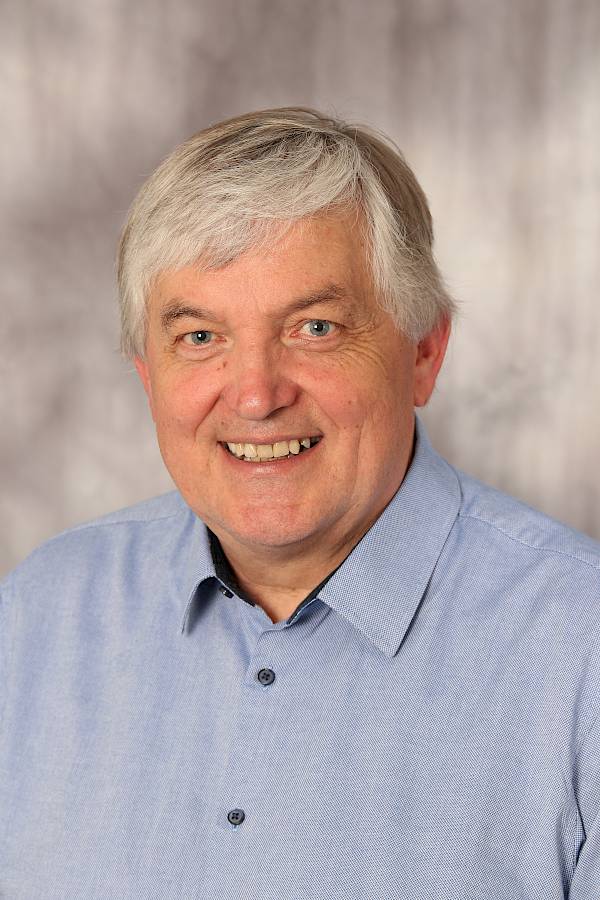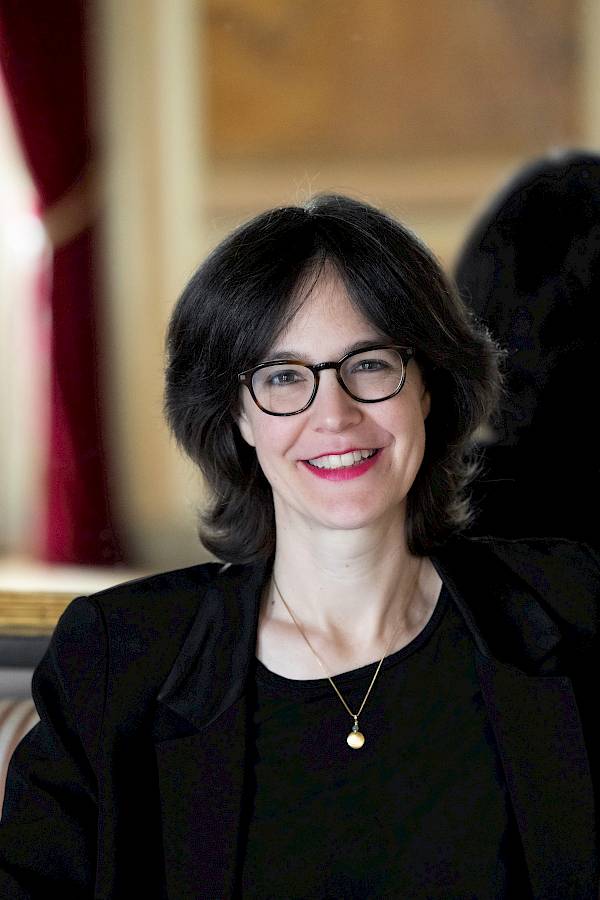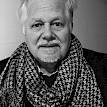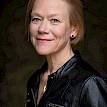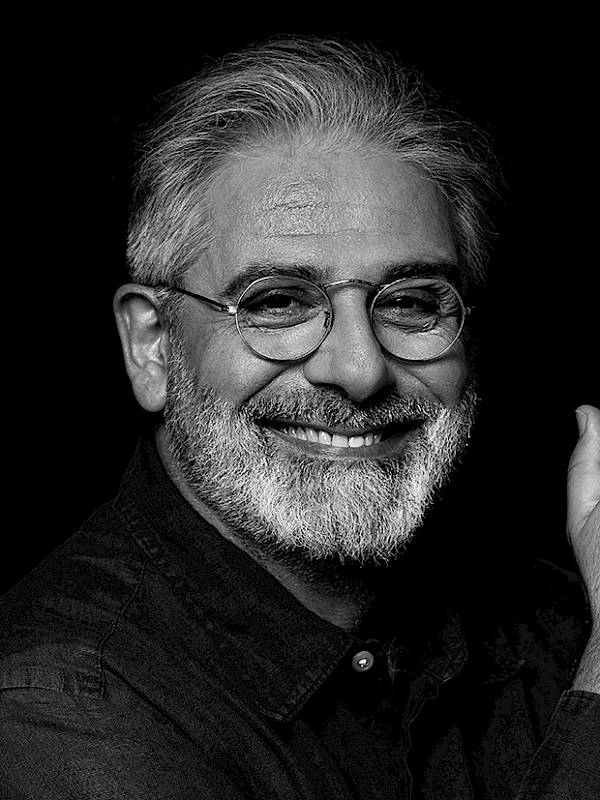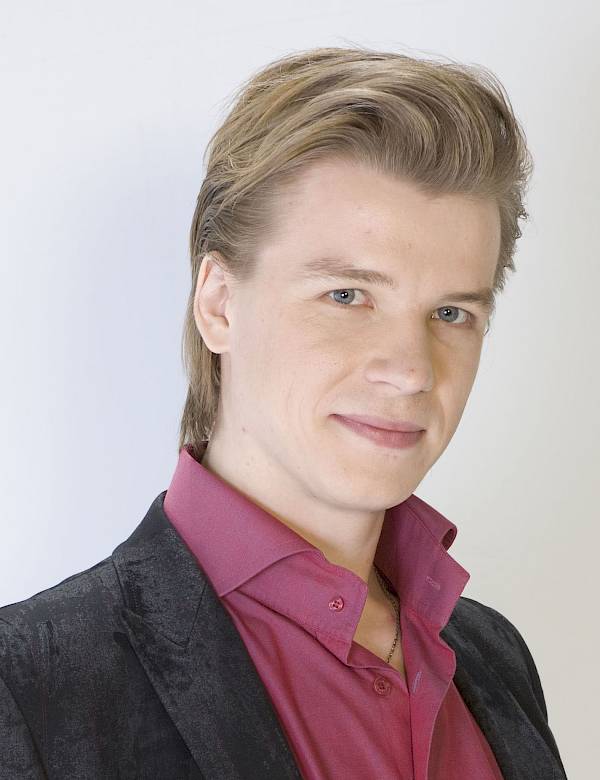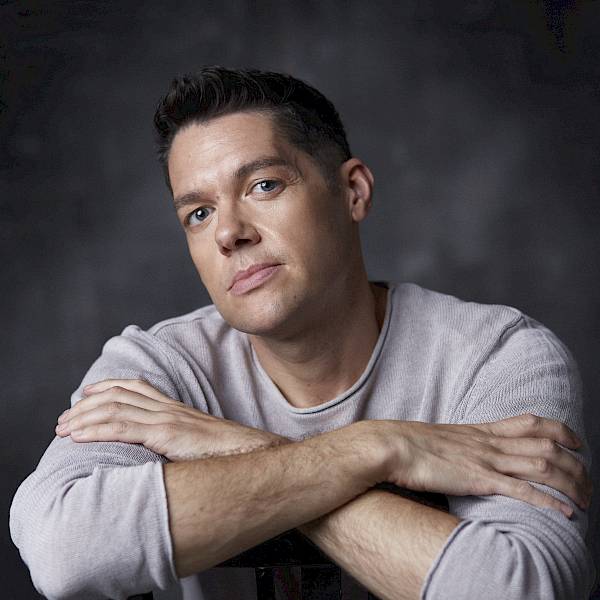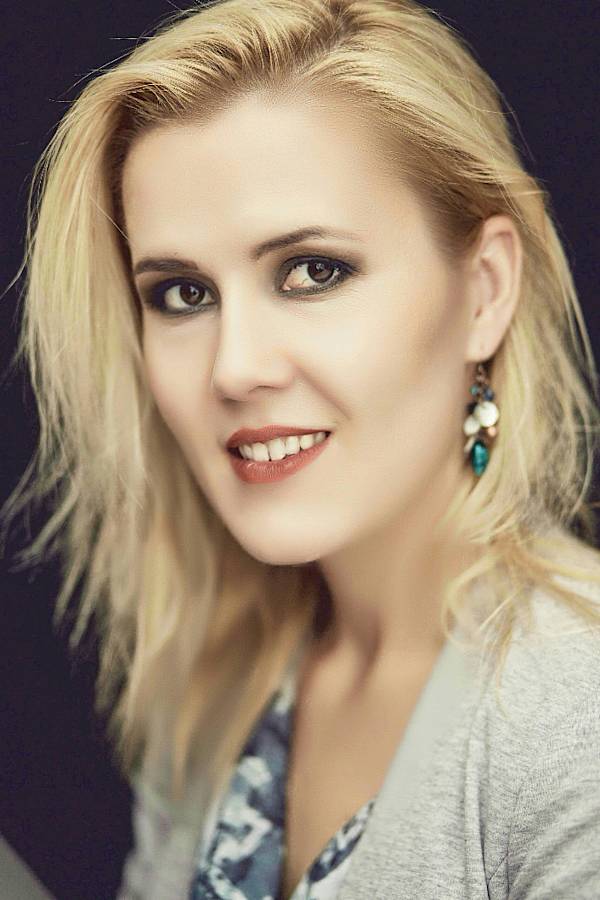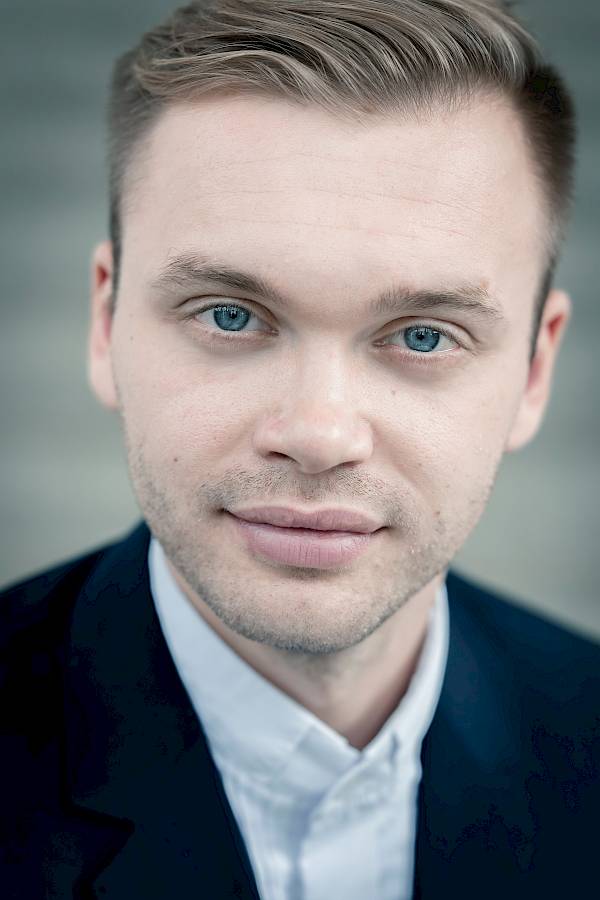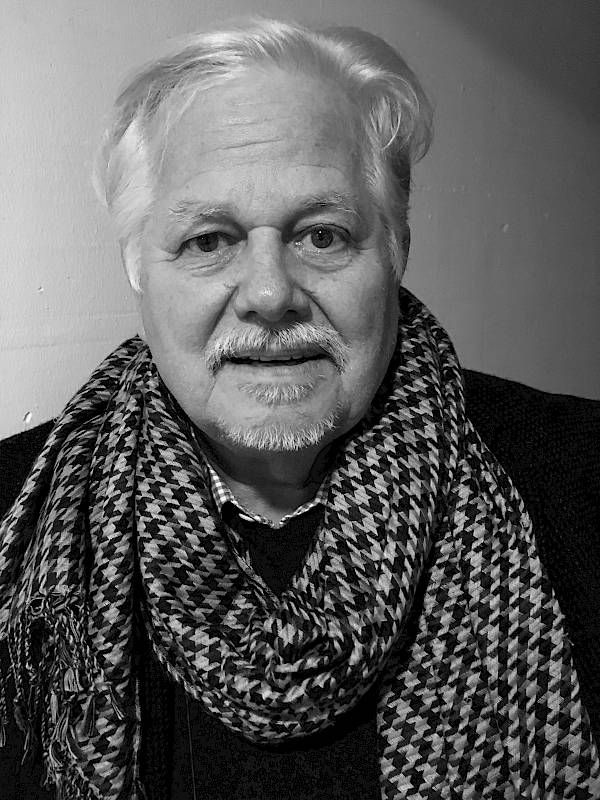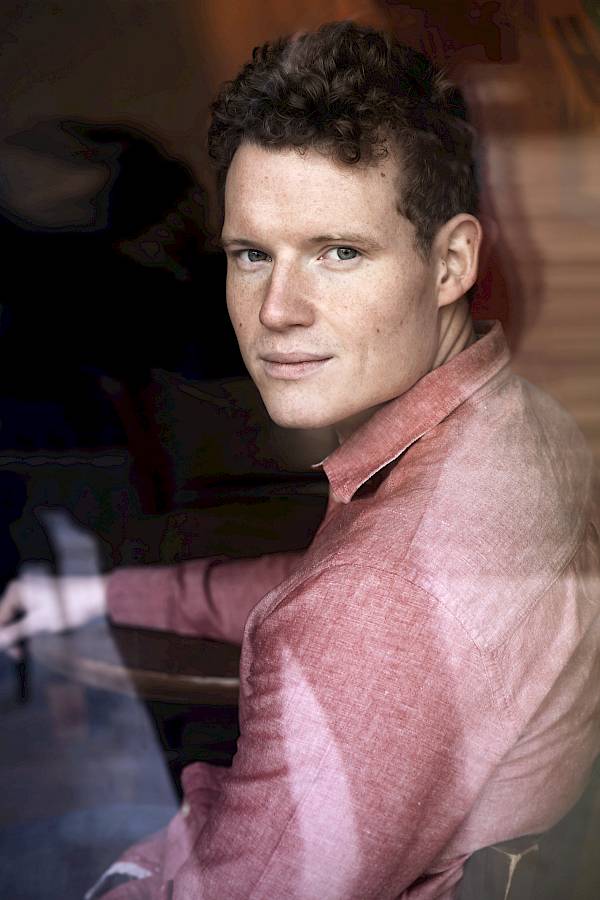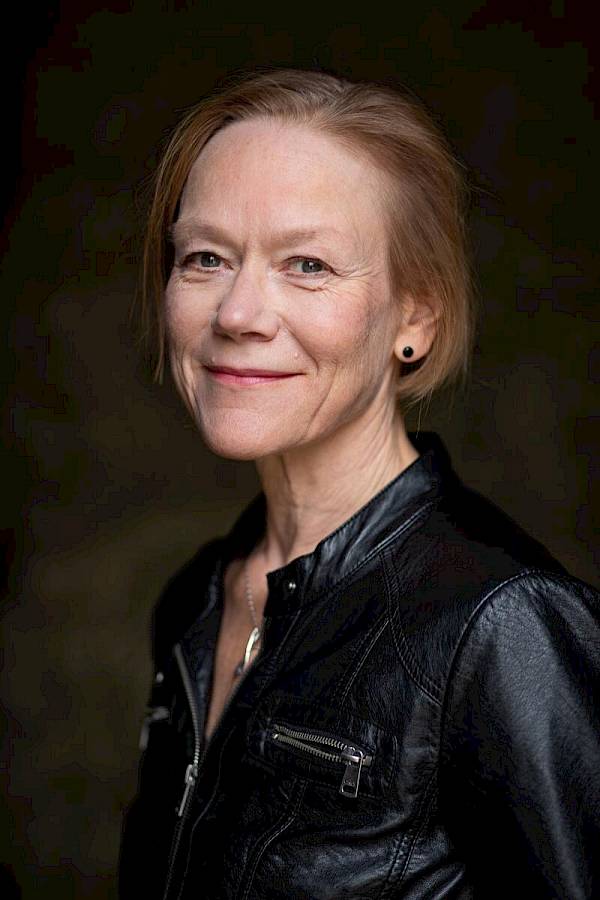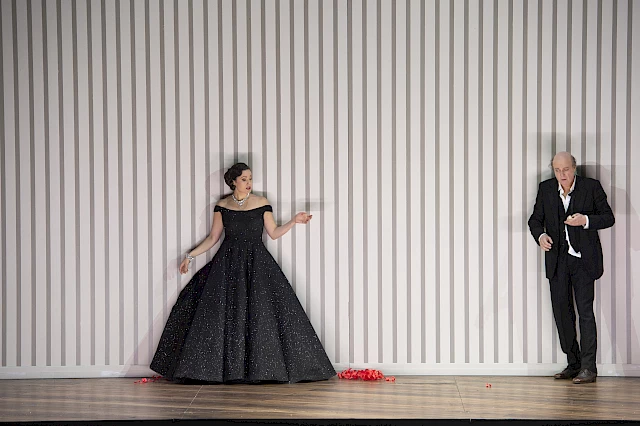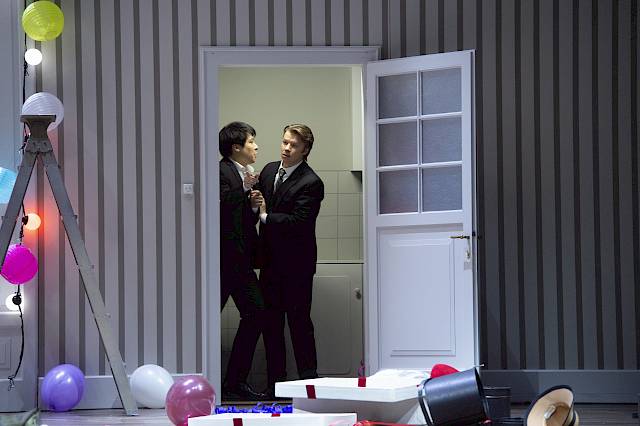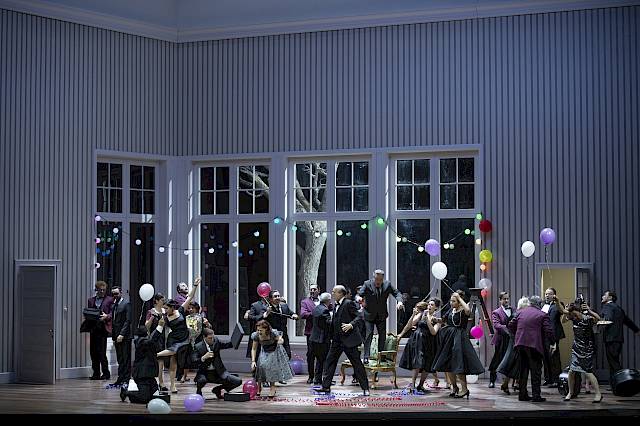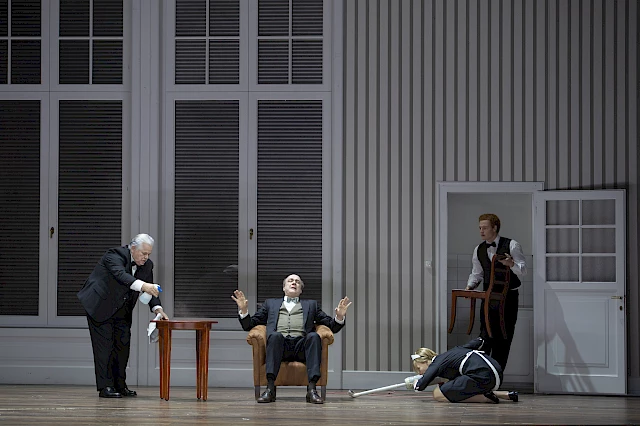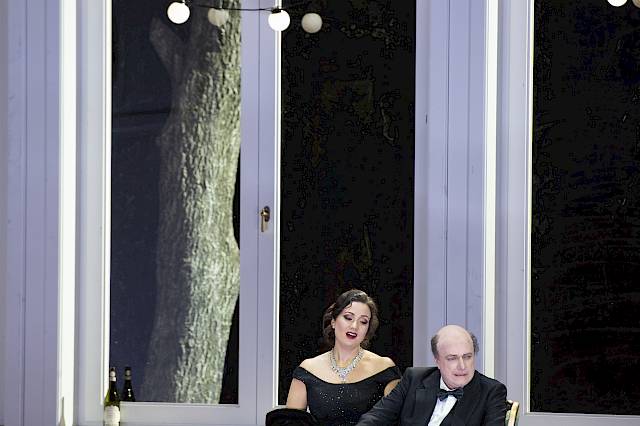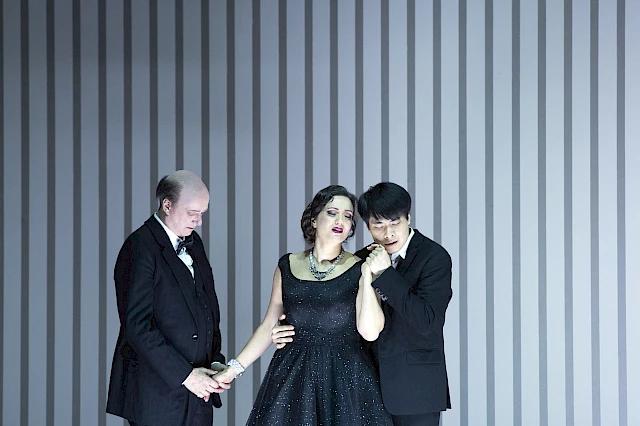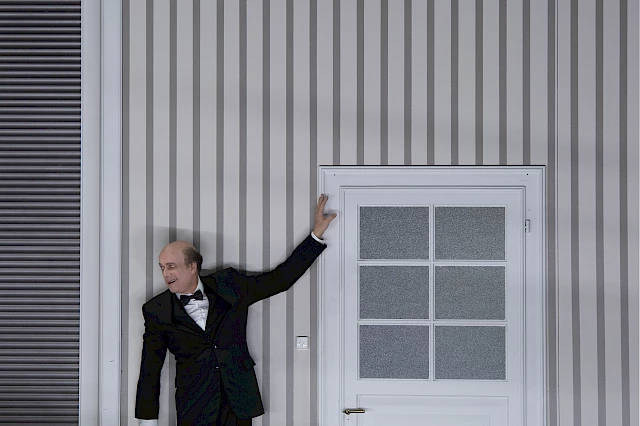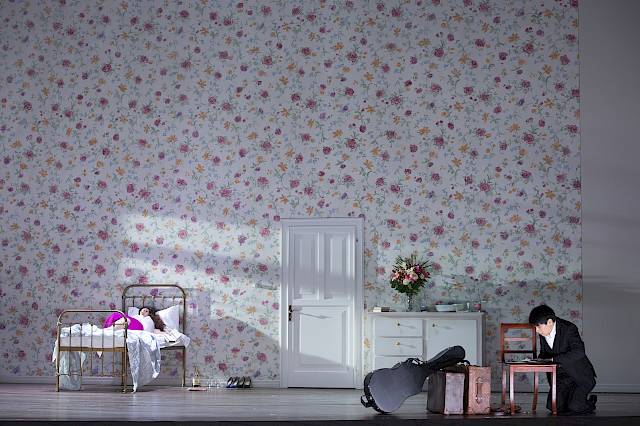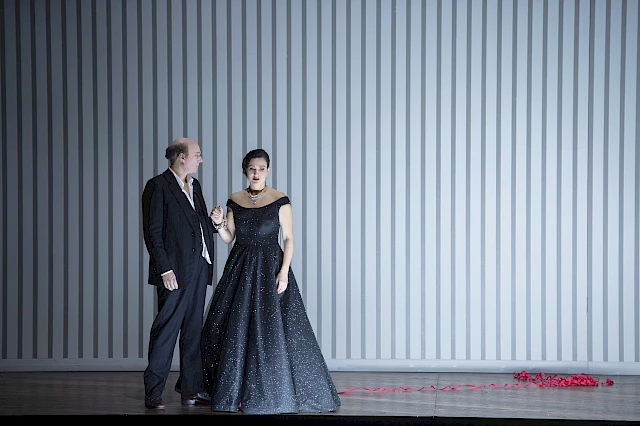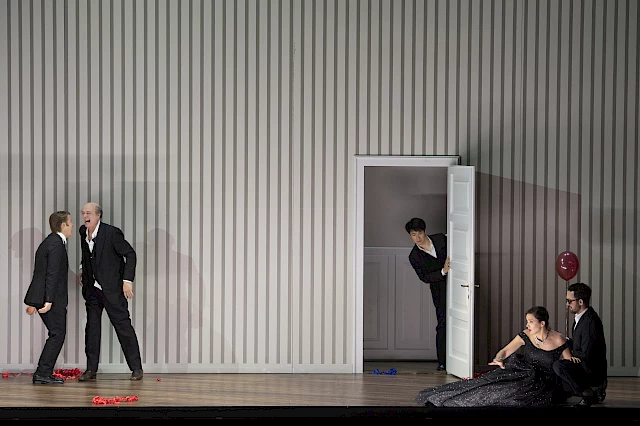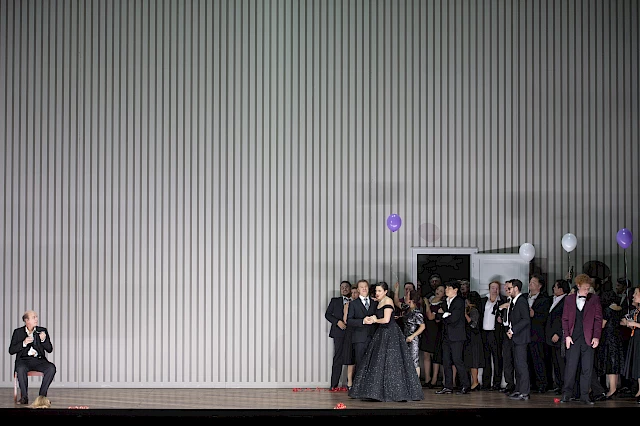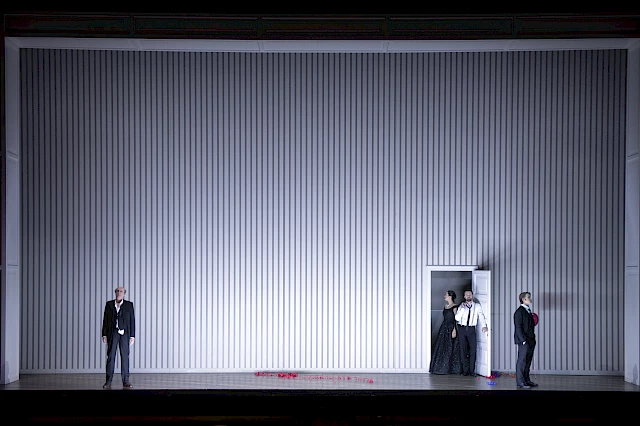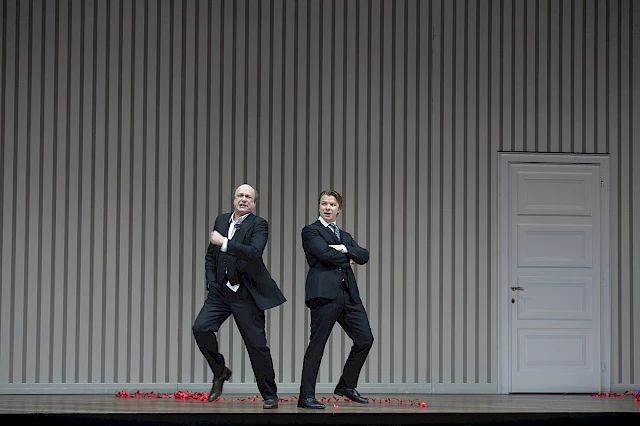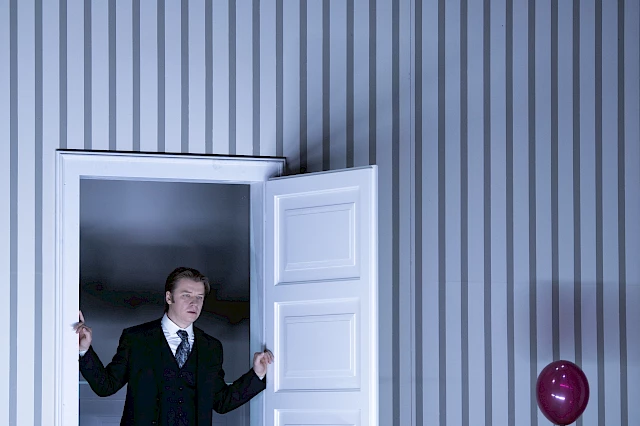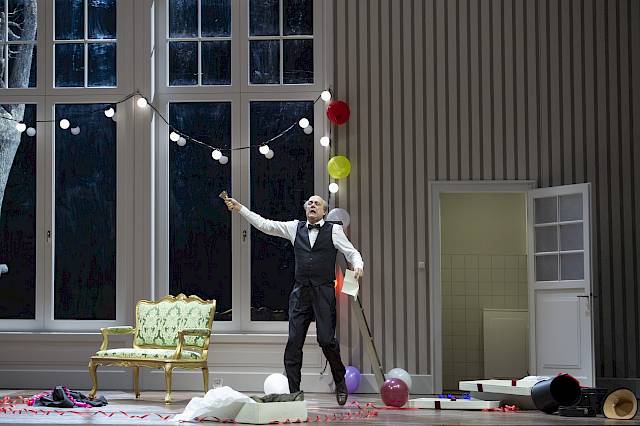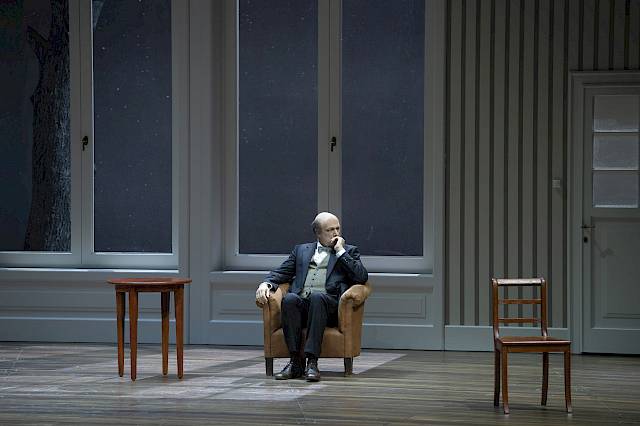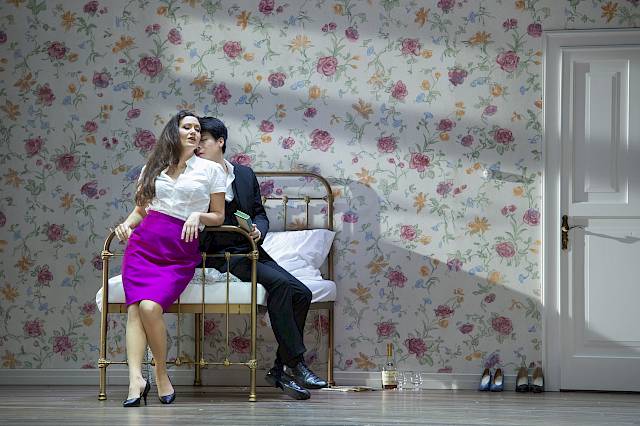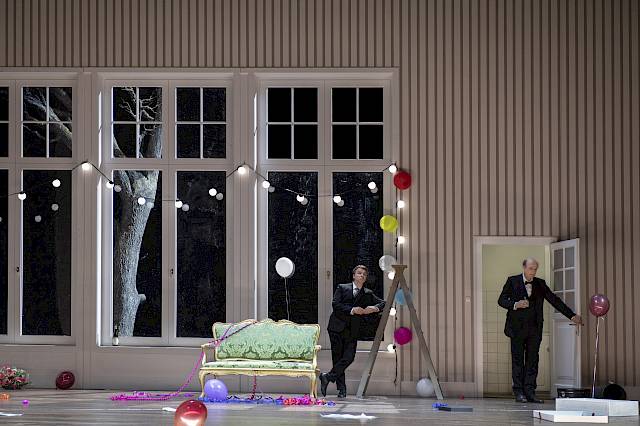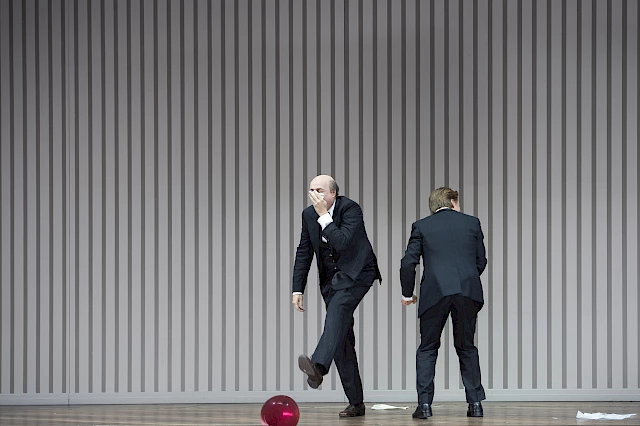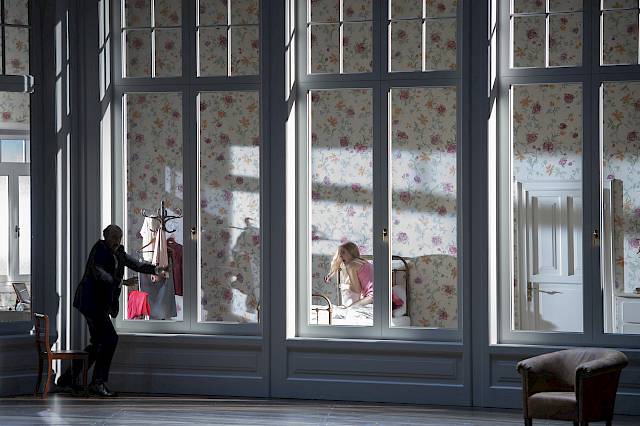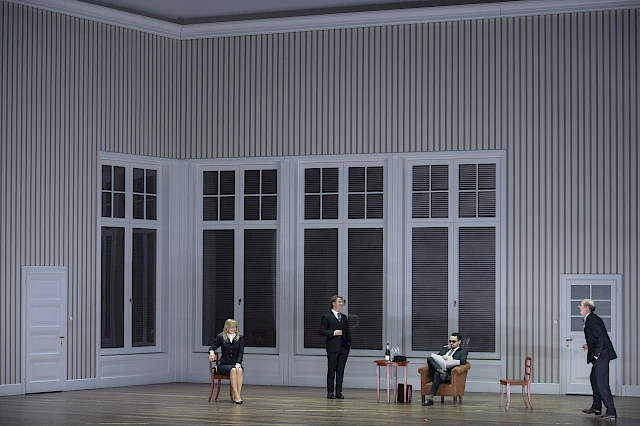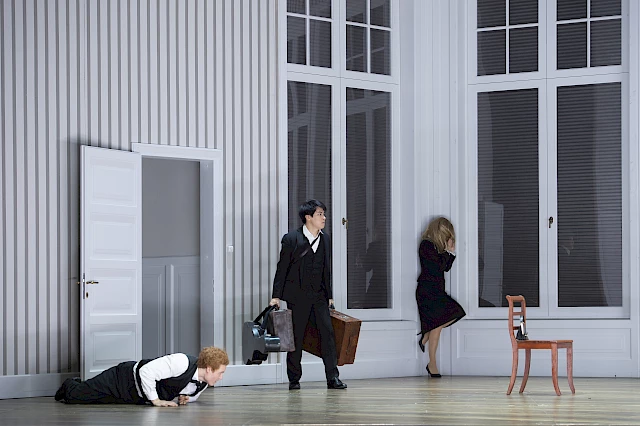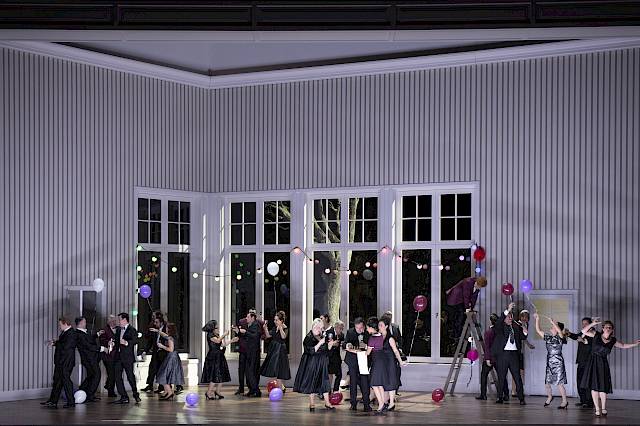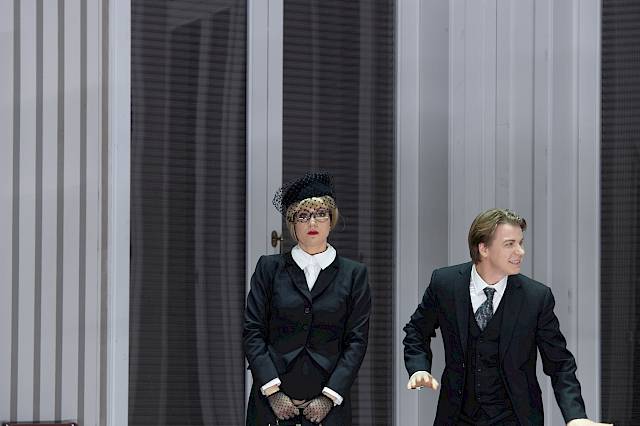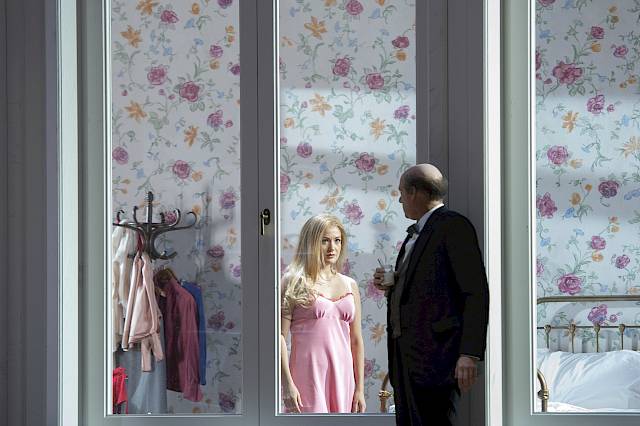Don Pasquale, an elderly, well-to-do bachelor, has brought up his nephew Ernesto as his own son. Now that Ernesto is of marriageable age, his uncle has chosen him a wife befitting his social status. Pasquale considers his nephew a romantic dreamer with no experience of life, and believes that he must make this decision on his behalf with a view to preserving his estate for further generations. However, Ernesto defies him, as he is passionately in love with Norina, an impoverished young widow whom he met through Dottore Malatesta, his uncle’s counsellor and doctor. Because Ernesto continues to refuse to marry the woman his uncle has proposed, Don Pasquale, obstinate as he is, now intends to find another way to prevent the family legacy from being squandered. Despite his age and the fact that he has never been near a woman, he now wants to find the perfect, pretty young woman of his dreams, marry her and make her his sole heiress.
Don Pasquale acquaints Dottore Malatesta with his marriage plans, ignorant of the fact that Malatesta is also a friend of Norina and Ernesto’s. Malatesta promises Pasquale that he will assist him in his quest for the woman of his dreams. However, Malatesta in reality intends to discourage Pasquale in his plans to marry, and to help Ernesto to marry Norina. This would also ensure that his connections with the Pasquale household would continue in the future – with all the financial benefits that this could entail.
Act One
Malatesta has good news for Don Pasquale. The woman of his dreams has been found: it’s Malatesta’s own sister, Sofronia. Having just finished her schooling in a convent, she is a modest young woman with the looks of an angel. Malatesta intends to introduce her to Pasquale this very day. Pasquale is beside himself with joy, and already envisages himself as a father surrounded by a swarm of dancing children. A new life can now begin, and important decisions must be made. Somewhat prematurely, he informs his nephew of his marriage plans, disinherits him without further ado, and shows him the door. There is no more room in the house for him. Ernesto suddenly sees himself impoverished on the street for all eternity and believes that he can now no longer offer his beloved Norina a secure livelihood. In a painful letter, he informs her that this is the reason he must part from her. Norina is horrified when she reads Ernesto’s letter of farewell, particularly as it states that Malatesta, whom she also trusts, wants to barter away his sister as old Pasquale’s wife. Malatesta, however, clarifies the misunderstanding: this marriage is to be a marriage of convenience. Norina herself is to masquerade as the convent girl Sofronia. Malatesta’s cousin Carlotto will play the notary and perform the marriage ceremony. Within a few hours, the bogus Sofronia will reveal herself as a bickering wife and cure Pasquale of his marriage plans once and for all. There will thus be no further obstacles to an official marriage between Norina and Ernesto. Norina goes along with the plan.
Act Two
Malatesta introduces Norina as Sofronia, his shy sister. Pasquale is more than enchanted: he falls in love with her and wants to marry her right away. The bogus notary has already arrived and the marriage certificate is about to be signed when the deeply aggrieved Ernesto, his suitcases packed, interrupts the ceremony to bid his uncle farewell. In order to avoid complications and objections, Malatesta has not informed him of the intrigue. Now Ernesto sees Norina before him as his uncle’s wife, and to boot is forced to sign the marriage contract as a witness. He cannot believe his eyes. However, no sooner has the contract been signed than the docile Sofronia shows a completely different side of her character, and Ernesto understands that he is playing a role in a comedy. The bogus Sofronia peremptorily orders radical changes to the house, which according to the marriage contract now belongs to her: completely new furnishings and decoration, a new car, a significant increase in staff numbers, higher wages for the servants, and so on and so forth. Pasquale cannot believe his eyes. He is seized with rage and despairs that he has been so gullible. Malatesta professes that he no longer recognises his own sister.
Act Three
Life in the household, which has hitherto been run on such a modest scale, is transformed within a matter of hours. Glittering parties are given, servants come and go, nobody knows where all these servants and guests have suddenly come from. And to Pasquale’s horror, Norina intends to leave the house and go out wearing a grand evening dress on the very night of her wedding. When he tries to prevent her, she violently makes it clear to him that he has no say in the matter, just as he himself dictated in the marriage contract. After only a few hours of marriage, Pasquale wants only one thing: a divorce. All the more so when he finds a love letter addressed to his wife. A lover is expecting her for a tryst in the garden this very evening. Pasquale, who still has no suspicion that he is the victim of an intrigue, once again asks his adviser Malatesta for his help and support. But now it is also Malatesta’s turn to break into a sweat – when he hears that Pasquale intends to surprise his wife and her lover during their tryst and then turn the adulteress straight over to the police. Malatesta promises to persuade his sister to agree to a divorce without the help of the authorities. Don Pasquale, Norina as his wife Sofronia, Ernesto, who is still permitted to dream of Norina, Malatesta and his cousin Carlotto – they all meet in the garden by night. Pasquale accuses his wife of infidelity, and now Malatesta speaks on his behalf, for Don Pasquale has given him carte blanche. Malatesta explains to his supposed sister that she must resign herself to the fact that another woman will be moving into the house the next day: Ernesto’s bride, a certain Norina. The bogus Sofronia is horrified. Never will she tolerate this Norina living with her under one roof. She insists on being given proof that this is not a ruse to cast her out of the house. Malatesta convinces Pasquale that he must let Ernesto marry Norina after all. Pasquale is willing to do anything to liberate himself from the hell of his marriage to Sofronia, and says that Norina should come this instant. But now all pretences are dropped: Malatesta explains to him that Norina is the woman he fell in love with, married, hated and wanted to get rid of. The real Sofronia is still in the convent school. Pasquale has had enough of everything and gives his agreement to something he had previously so vehemently resisted: his nephew marrying Norina, a young widow with a dubious reputation. Norina attempts to placate Pasquale.


